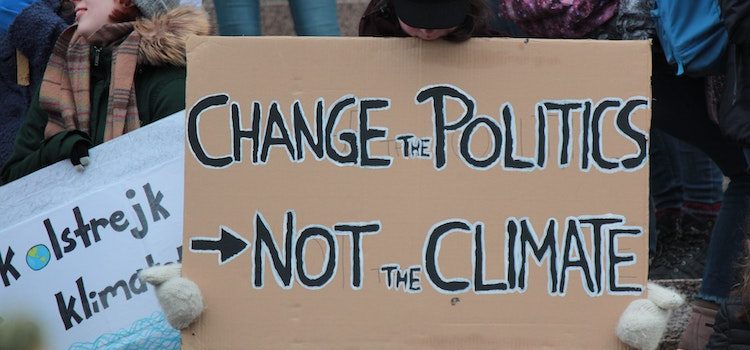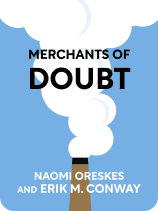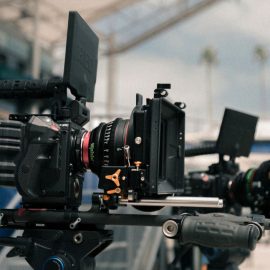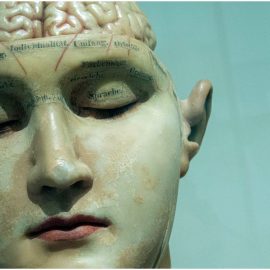

This article is an excerpt from the Shortform book guide to "Merchants of Doubt" by Naomi Oreskes and Erik M. Conway. Shortform has the world's best summaries and analyses of books you should be reading.
Like this article? Sign up for a free trial here .
What was Roger Revelle’s impact on the climate change debate? How did doubt-mongering threaten to discredit him?
In their book Merchants of Doubt, Naomi Oreskes and Erik Conway take on individuals or groups who seek to discredit science that they perceive to be a threat to their agenda. One of the targets of a doubt-mongering campaign was Al Gore’s mentor—Roger Revelle.
Read more to learn about Roger Revelle and the merchants of doubt.
Roger Revelle Enters the Climate Change Debate
In 1965, Roger Revelle summarized the possible impacts of the warming caused by CO2. There were still a lot of unknowns, so he focused on the sea-level rise because it seemed the most certain. He estimated that by 2000, there could be notable changes in climate because there would be 25% more atmospheric CO2. As the planet warmed, sea ice would increase in size due to thermal expansion (volume increases when material warms up), and this would push water farther inland.
Lyndon Johnson read the report but had bigger problems (such as the Vietnam War) and didn’t do anything about it. The next president, Nixon, did consider atmospheric changes, but he was focused on the greenhouse gas effects of water (from supersonic transports (SSTs)), not CO2.
Discrediting Roger Revelle
Roger Revelle was an important voice in the climate change discussion. He was also Al Gore’s mentor, so if the merchants of doubt (MODs) could make it look like Revelle had changed his opinion on global warming, it would not only sow doubt, it would hurt Gore’s 1992 presidential campaign, which focused on the environment.
Fred Singer attended one of Revelle’s talks and approached him about writing an article together that would be called “What To Do about Greenhouse Warming: Look Before You Leap.” Revelle agreed but shortly after, he had a heart attack. An operation saved him, but there were further complications and his health deteriorated. He and Singer continued working on the article (though Revelle appeared to have lost enthusiasm), and Revelle may not have been able to look closely or check changes due to his health.
While still working with Revelle, Singer wrote his own article with almost the same title (“What To Do about Greenhouse Warming”). This article reused the Marshall Institute’s work and focused on uncertainty.
In February 1991, Singer and Revelle met to discuss their paper. They argued about how sensitive the climate was to CO2. The current draft of the paper claimed that the warming would be “well below the normal year to year variation” and less than 1 degree Celsius. Revelle corrected the numbers in the margin. Singer ultimately cut the numbers, so the next draft read that a “modest average warming” and still contained the phrase about the warming being below the normal variation. The historical record doesn’t show whether Revelle ultimately agreed to this wording, but everyone who knew him expected he hadn’t. Revelle was well aware of natural variability because he was a geologist (natural variability is determined from paleoclimate data).
The article appeared in Cosmos (a non-scientific journal with low circulation) and because Revelle was listed as the second author, it looked like he had agreed that the warming wasn’t significant or outside of normal. One of Revelle’s colleagues stated that Revelle was embarrassed by the paper (Revelle died shortly after it came out).
While few scientists read Cosmos, the article made its way into public consciousness. In 1992, Al Gore’s critic Gregg Easterbrook attacked him for failing to mention that Revelle had ultimately concluded that there was too much uncertainty to act. The quote Easterbrook used to support this was from Singer’s solo 1990 paper with a similar title to the co-authored one. Other critics repeated the attacks.
Setting the Record Straight
Several people tried to set the record straight about Roger Revelle.
1. Revelle’s daughter published an op-ed.
2. Two of Revelle’s colleagues wrote to Cosmos. They wrote that Singer had written the paper, not Revelle, and that Singer had probably only included his name as a thank-you for advising and reviewing. Cosmos wouldn’t publish their letter, so they sent it to Oceanography (a scientific journal mainly read by scientists).
3. Justin Lancaster, a colleague and close friend of Revelle:
- Wrote to the journal that had published Easterbrook’s attack. The journal refused to publish Lancaster’s letter.
- Tried to get Singer to remove Revelle’s name from the paper when it was republished. Ultimately, the republication had a footnote to another of Revelle’s papers that presented his thoughts on climate change.
- Complained about the Cosmos article at Revelle’s memorial symposium and continued to go public about Singer pressuring Revelle. Singer filed a libel lawsuit. Lancaster tried to fight it, but he didn’t have the money and had to settle.
Revelle probably didn’t actually change his mind about global warming. In November 1990, he wrote an unpublished introduction to a meeting (Oreskes and Conway found it in his papers), which states that he thought that climate was serious and we should act.

———End of Preview———
Like what you just read? Read the rest of the world's best book summary and analysis of Naomi Oreskes and Erik M. Conway's "Merchants of Doubt" at Shortform .
Here's what you'll find in our full Merchants of Doubt summary :
- How doubt-mongering techniques are used to discredit those who threaten a person or company's agenda
- The 10 most common doubt-mongering techniques
- Steps you can take to protect yourself from doubt-mongering







Thank you, Elizabeth for bringing this important story forward.
The libel lawsuit brought by Singer was backed by funding from the energy industry using disguised pathways through conservative non-profits. It was an insidious plot to take Gore’s credibility out at the knees. It worked. Of course Gore didn’t realize that Clinton was already owned by the Bush tribe! Climate politics were stifled in the 90s.
Singer’s solo article had been published in Environment, Science and Technology much earlier and represented more than 90% of the Cosmos Club article. It did not match Revelle’s view. We had the series of drafts sent by Singer to Revelle showing Revelle did not participate in authoring the article. Rather, it was co-written by a cabal of Singer’s henchmen.
Revelle’s secretary testified by deposition that Singer cornered Revelle one afternoon in his office and wore the old man down reviewing the final galley draft. We have Revelle’s notations and Singer’s notations in the margins made during their discussions revealing Revelle’s disagreement with the text. Revelle’s corrections were ignored in the final publication, allowing a contrary conclusion to what he believed.
Revelle didn’t think Singer was a good scientist and he was trying to help him out. He got hoodwinked.
Revelle predicted a 2-3 degree Celsius warming in this century, sea level rise and positive feedback from release of methane from Arctic clathrates. The CO2 group at the Scripps Institution had been studying atmospheric carbon dioxide for 40 years by the early 90s.
Tom Rowan wrote a commissioned play about this moment in global warming political obfuscation, called “The Article in Question.”